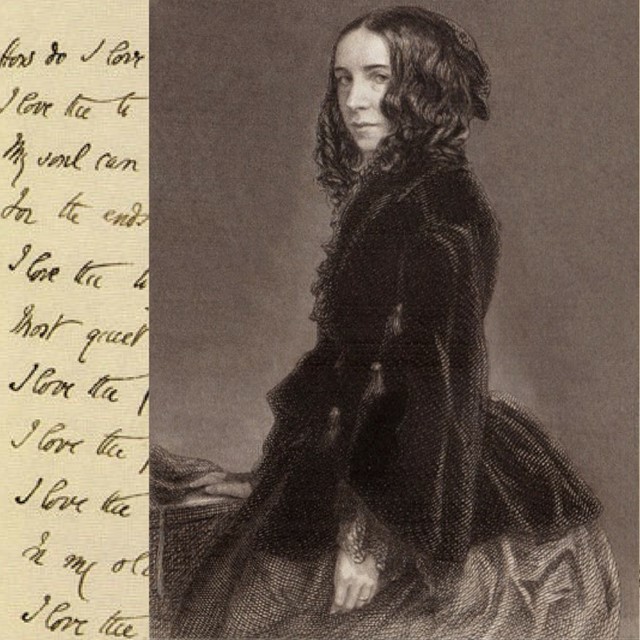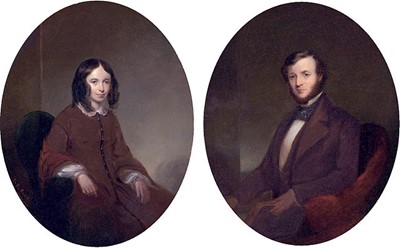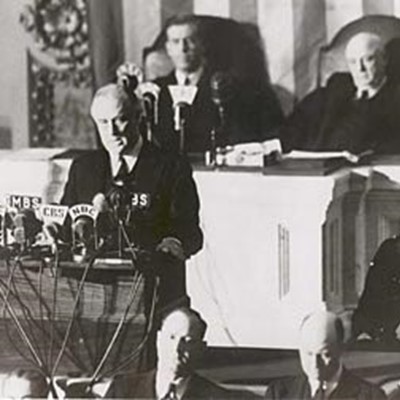
The Buckley School's founder believed that all speakers should hone their presentation skills by reading poetry out loud. We keep that worthwhile practice alive by including a poem in our magazine each month for you to read aloud.
An English poet of the Romantic Movement, Elizabeth Barrett Browning had a life that sounds like the plot of an outrageous romance novel--evil father, lonely childhood, poor health, locked away from the world until a young poet discovers her work, writes her no less than 574 letters, then helps her escape to Florence, Italy, where she finds friends and creates a family, pursues her writing career, and fights social injustices.
 Elizabeth Barrett and Robert Browning
Elizabeth Barrett and Robert Browning
Her Sonnets from the Portuguese, dedicated to her husband Robert Browning, includes one of the best-known love poems (or at least love lines) in the English language. She also wrote a verse novel, Aurora Leigh.
The letters between Barrett and Browning inspired the 1930 play The Barretts of Wimpole Street.
How Do I Love Thee? (Sonnet 43)
By ELIZABETH BARRETT BROWNING
How do I love thee? Let me count the ways.
I love thee to the depth and breadth and height
My soul can reach, when feeling out of sight
For the ends of being and ideal grace.
I love thee to the level of every day’s
Most quiet need, by sun and candle-light.
I love thee freely, as men strive for right.
I love thee purely, as they turn from praise.
I love thee with the passion put to use
In my old griefs, and with my childhood’s faith.
I love thee with a love I seemed to lose
With my lost saints. I love thee with the breath,
Smiles, tears, of all my life; and, if God choose,
I shall but love thee better after death.
From Be My Valentine, Charlie Brown, here's Sally reading Sonnet 43 aloud while Snoopy provides his interpretation:






